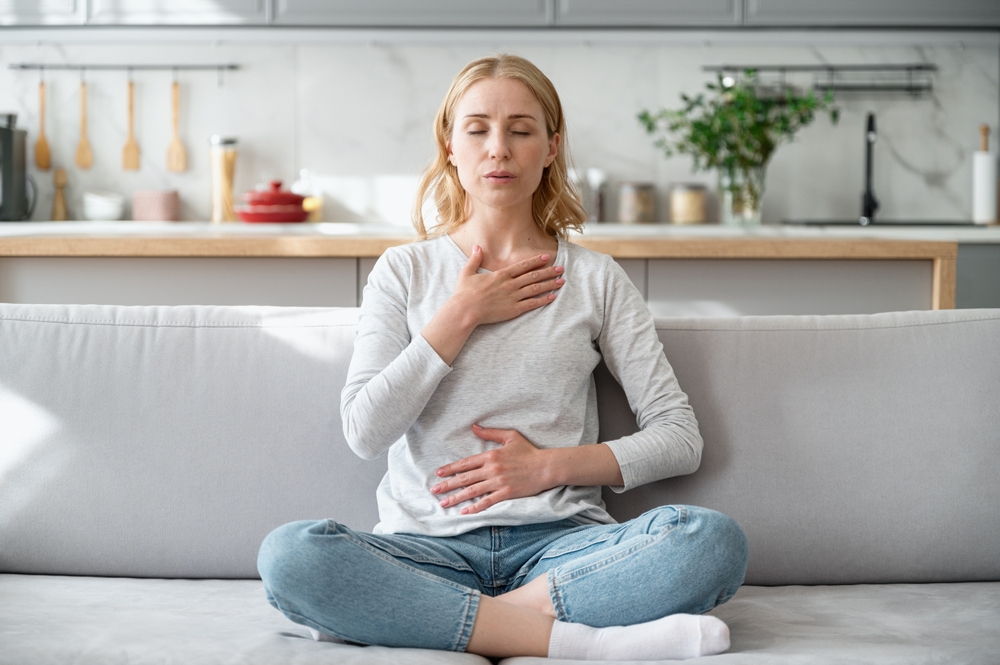
As one of the most common mental health challenges worldwide, anxiety affects millions of people every year. In fact, research shows that nearly one in three individuals will experience it at some point in their lives.
Living with this can feel overwhelming, but it’s important to know you are not alone and that there are many paths toward feeling better.
What Causes Anxiety?
This response is part of being human, but it can become disruptive when it grows stronger than a situation requires.
Anxiety arises through a combination of influences such as brain chemistry, personal experiences, and ongoing stress. Genetics may also raise the likelihood of facing it, while environmental pressures can intensify it.
Because so many factors overlap, there is no single cause. Instead, it emerges from the interaction between mind, body, and environment.
Recognizing this complexity eases self-blame and creates a space for understanding and healing.
How Is Anxiety Different From Feeling Anxious and Normal Worry or Stress?
Everyone experiences tension, worry, or pressure from time to time.
Feeling anxious is a short-term reaction, like nervousness before an exam or important conversation.
Stress often comes from outside demands, such as work deadlines and family responsibilities, and usually fades once the challenge passes.
Ordinary worry tends to focus on specific concerns and can even motivate problem-solving.
Anxiety goes beyond these everyday reactions. It lingers, intensifies without clear reason, and interferes with daily life.
What Are Common Signs and Symptoms of Anxiety?
Many people notice changes in both the body and behavior when distress is present:
Physical Symptoms
- Chest tightness
- Dizziness
- Fatigue
- Headaches
- Increased heart rate
- Muscle tension
- Nausea
- Shortness of breath
- Sweating
- Trembling
Behavioral Signs
- Avoidance of situations
- Difficulty concentrating
- Irritability
- Restlessness
- Sleep disruptions
Can Anxiety Affect Physical Health?
Yes, it can.
The body responds to persistent tension by activating stress pathways that strain different systems.
Hormones surge, heart rhythm speeds up, and breathing patterns shift, placing pressure on the cardiovascular and respiratory systems.
Muscles that stay tight for long periods of time can trigger discomfort or pain.
Digestion often slows or becomes irregular, leading to stomach upset.
When sleep suffers, it leaves the body without needed rest.
Over time, these reactions accumulate, lowering resilience and making the body more vulnerable to illness.
How Is Anxiety Diagnosed?
Healthcare professionals confirm a diagnosis by gathering a clear picture of a person’s experiences.
They start by asking questions about thoughts, emotions, and daily patterns. Additionally, medical history is reviewed to rule out other explanations for the difficulties someone faces.
Structured interviews and questionnaires often help organize details and highlight patterns that point toward a diagnosis.
By combining personal accounts with clinical tools, providers create an informed understanding that guides care.
Can Anxiety Be Treated Without Prescription Medication?
Professionals and individuals often turn to non-prescription options that support calmness and balance. The following six methods nurture the mind and body in natural, practical ways:
- Herbal remedies: Certain plans, such as chamomile, lavender, and valerian root, have a long history of use for easing tension. People often drink them as teas or take them as standardized extracts to encourage relaxation.
- Mind-body practices: Gentle activities like yoga, meditation, and tai chi create a space for stillness while lowering internal pressure. Regular practice strengthens focus and fosters a sense of inner steadiness.
- Breathing exercises: Slow, deliberate breathing helps regulate the nervous system during moments of unease. Practicing this technique daily can build recovery capacity and provide comfort during stressful times.
- Physical exercise: Movement, whether walking, cycling, or dancing, reduces built-up strain and releases endorphins that enhance mood. Consistency matters more than intensity, making even light exercise beneficial.
- Journaling: Writing down emotions and thoughts provides clarity and can make challenges feel more manageable. Gradually, this process creates perspective and develops self-awareness.
- Social connections: Spending time with trusted friends or loved ones offers encouragement and reassurance. Supportive relationships act as a protective factor, helping people cope positively.
How Do I Find Help for Anxiety?
Locating a skilled professional requires careful evaluation. Use the following to find a provider suited to your situation:
- Verify the specialist’s education and background in treating individuals with anxiety.
- Review testimonials from other patients to gain insight into the provider’s methods, success, and reliability.
- Inquire about the range of therapeutic approaches offered to ensure they match your personal goals and preferences.
- Scheduling meetings with two or three professionals to assess their communication style, rapport, and overall comfort during discussions.
- Reflect on these encounters to identify the one who created the most encouraging and trustworthy environment for continued support.
How Long Does It Take to Feel Better?
Some people notice changes within weeks, such as calmer thoughts or easier focus. For others, meaningful progress can take months as new habits on coping strategies take root.
Patience plays a key role, and small steps over time build noticeable relief.
Tracking experiences and celebrating minor achievements can reinforce the positive effects of treatment.
Where Is the Best Place to Go in DeBary for Anxiety Help?
At Ageless U Med Spa, our team provides guidance tailored to your situation.
Contact us at 386-951-4161 to book your consultation and explore strategies to encourage emotional balance, strengthen coping abilities, and foster a sense of calm in daily life.
Discover tools to manage overwhelming thoughts, navigate challenging moments, and build resistance to anxiousness.
Each session offers an opportunity to reflect, learn, and gain perspective in a supportive environment.
Take this first step to better mental and emotional health today!
